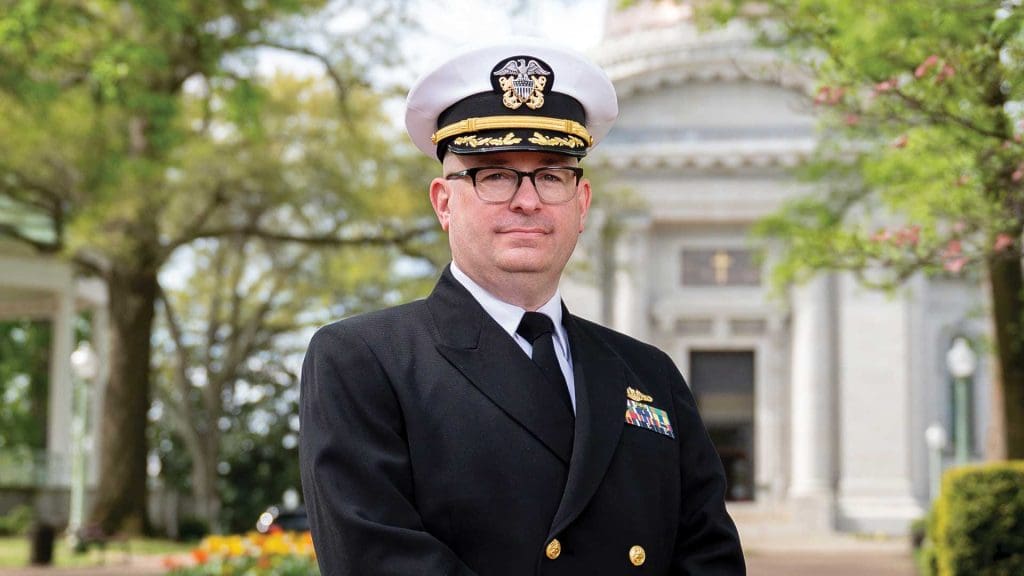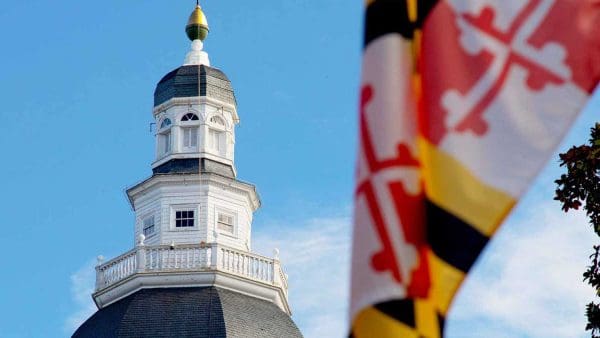
In 2018, Ryan Mewett ’22 PhD sat at a wooden desk in a sea-scented room in the British city of Bristol, reading documents that looked as if they had been ignored for centuries.
As he carefully turned the brittle pages in the Bristol Archives, he came upon some that were startling: witness statements accusing British warships in the 1730s of participating in the African slave trade. The signed allegations were from merchants who were not concerned with the morality of capturing and enslaving people for their own profit. Rather, they were angry that the military ships were creating unfair competition.
Mewett, a U.S. Naval Commander who has served aboard nuclear submarines, knew he had found a worthy starting point for his history dissertation.
“As I worked through each new source, it gave me loose ends that would require me to go to other sources,” he says. “I kept doing that until my argument emerged, which was that, broadly, merchants had much more influence than historians previously thought in the way that the Royal Navy professionalized during the 18th century.”
Mewett, 43, defended his dissertation in August 2022 and eight days later began a job as permanent military professor, teaching history at his alma mater, the U.S. Naval Academy in Annapolis. “Twenty-five years ago, I was sitting where my students are now, which is a fun thing to point out to them,” he says.
Choosing to Serve
Mewett knew from a young age he wanted to serve in the U.S. military, he says.
“My dad is Welsh and my mom is Canadian,” says Mewett, who grew up in Texas. “Maybe because I was a first-generation American, I thought a fair bit about the high-minded principles of America. I thought we had a system worth preserving, and I thought people have to do that, and that I might be OK at it.”
After graduating from the Naval Academy with a history degree in 2001, he served for 17 years as a submarine officer, while earning two master’s degrees: one in international relations from Waseda University in Tokyo in 2008, and a second in naval history from the University of Portsmouth, in England, in 2017.
He notched another accomplishment in those years as well, winning more than $30,000 over the course of two November 2015 episodes of the Jeopardy! television show.
By then, he wanted to put his passion for history to use by becoming a professor, a job that required a doctoral degree.
Modern Naval History
Mewett chose Johns Hopkins for his PhD in part because it requires doctoral candidates to craft an article-length paper in their first year. “They want to get you right into research,” says Mewett.
His advisors were John Marshall, Leonard and Helen R. Stulman Professor of History and a specialist in early modern Britain; and Philip D. Morgan, an expert in early modern colonial British America, who retired in 2022.
“I felt really lucky to work with both of them, because they each brought a unique perspective,” says Mewett. “The department was a great fit, and my advisors were a great fit for what I wanted to do.”
His first-year paper, “‘To the very great prejudice of the fair trader’: Merchants and Illicit Naval Trading in the 1730s,” won the Sir Julian Corbett Prize in Modern Naval History for 2019.
His 2022 dissertation, “The End of Impunity: Illicit Trade, Mercantile Power, and the Royal Navy, c.1713– 1765,” builds on his argument that the rules of the British Navy were very much formed by outside interests with their own agendas.
Mewett, who lives in Crofton, Maryland, with his wife and their two teenaged sons, plans to continue his research while finding his footing as a professor.
“An element of this line of work that I really like is the detective work,” he says; “running down leads and feeling like I’m looking at something that nobody has looked at before.”




